#Melibea
Text
This leafs Dress is worn on Penélope Cruz as Melibea from La Celestina (1996) and worn again on Unknown Actor as Lady from Shakespeare in Love (1998) and worn again on Unknown Actor as Lady from The Tudors Wolsey, Wolsey, Wolsey! (2007) and worn again later on Unknown Actor from Galavant Pilot (2015)
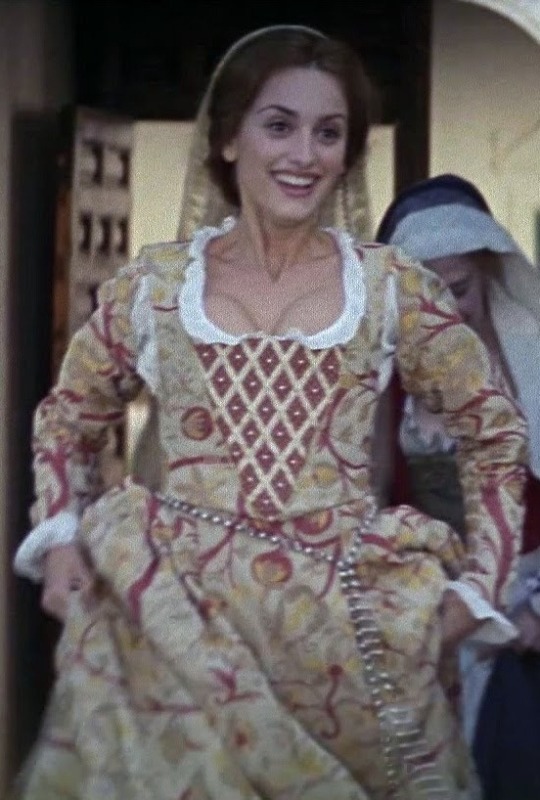
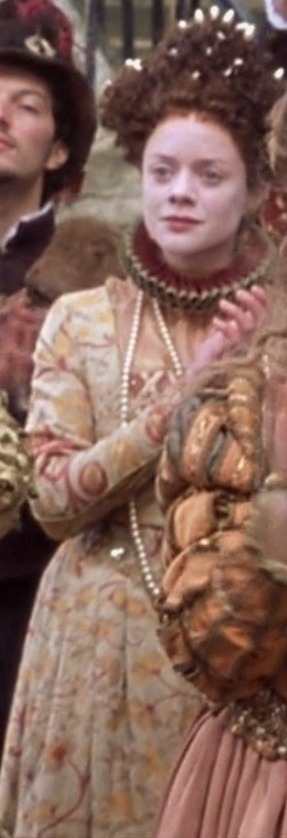
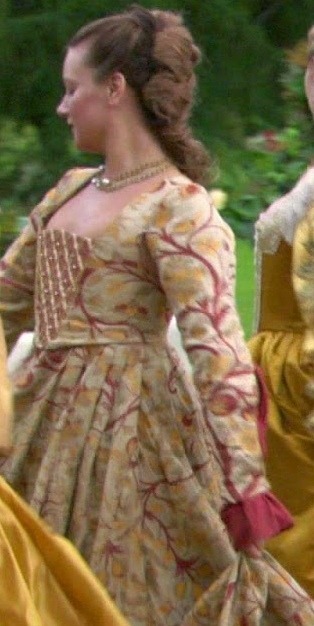
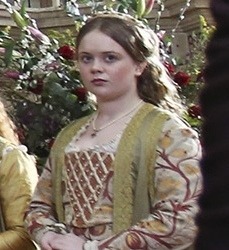
#recycled costumes#La Celestina (1996)#penélope cruz#Melibea#shakespeare in love#the tudors#galavant#period drama#historical drama#costume drama#reused costume#reused costumes
40 notes
·
View notes
Text
Like, imagine Juliet and Melibea talking.
Juliet is "We have so much in common! My Romeo died, out of love as he believed I was dead as well. And so did I when I discovered it" and Melibea, who also died because of grief and love, be like How do I explain that Calisto died because he fall from the stairs? How can I make that romantic?
(To make this clear, taking your life bc someone you love died isn't romantic irl.)
#romeo and juliet#juliet capulet#melibea#la celestina#the celestina#tw death#should I add a spoiler tag?#tw suicide
2 notes
·
View notes
Text
I have to read The Celestina for school, (a play from the *15th* century) and the only thing i can think of is who tf thought it was a good idea to make teenagers read that *in class* Lmaooo we have just ended the first act and It has said like a houndred times "fucking old whore!" and the most disgusting, funny, awful and disturbing sexual things u could imagine. every fucking time someone reads it, whe just start laughing, and the teacher gets mad. Like how can we not laugh?!? 😭
(if u want me to explain more tell me loll)
#like srsly#lmao what#help lmao#lol#literature class#classic literature#spanish#spanish literature#dark academia i guess#La celestina#celestina#pármeno#sempronio#calisto#melibea#areúsa#lucrecia#elicia#m00nlxv3r#dark acamedia#classic literature quotes
2 notes
·
View notes
Text
Calisto y Melibea de La Celestina, and I can't unsee it

#celestina#literature#the breakfast club#movies#vintage#spanish literature#calisto#melibea#john bender#claire standish#1985
4 notes
·
View notes
Text
"Lo malo de Celestina es precisamente que no se deja
arrastrar por la corriente del amor"
Ramiro de Maeztu
#celestina#ramirodemaeztu#filosofia#novela histórica#tiempo-para-el-alma#calisto#melibea#amor y dolor#tiempo#alma#satanas
0 notes
Text
ESN Presenta Buenas Lecturas y buenos Lectores E17
0 notes
Photo
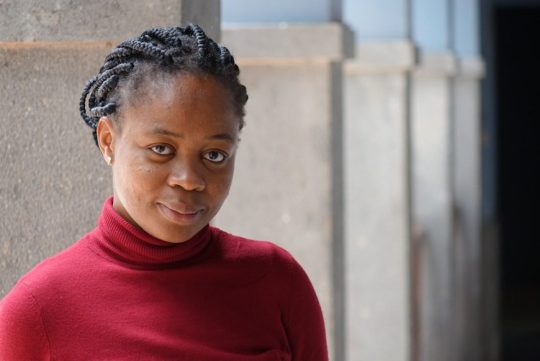
Trifonia Melibea Obono
Gender: Female
Sexuality: Bisexual
DOB: 27 November 1982
Ethnicity: Equatorial Guinean
Occupation: Writer, professor, academic, activist
Note: Her novel La Bastarda is the first novel by a female Equatorial Guinean writer to be translated into English
#Trifonia Melibea Obono#female#bisexual#1982#Equatorial Guinean#african#poc#writer#teacher#academic#activist#first#popular post#popular
112 notes
·
View notes
Text
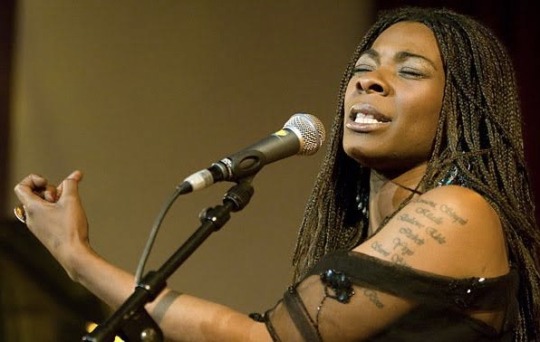
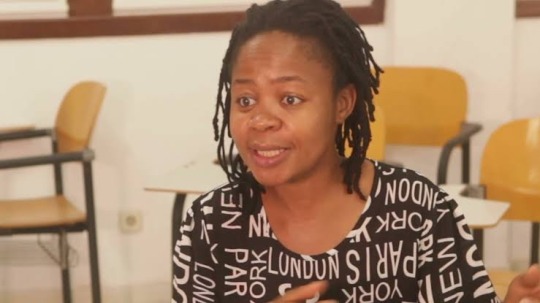

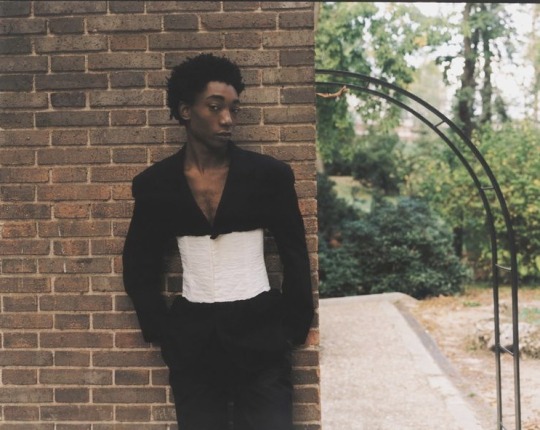
LGBTQ and Equatoguinean: Concha Buika, Trifonia Melibea Obono, Jade Boho and Luis Mba
15 notes
·
View notes
Text
He escrito fanfic de la Celestina para clase
1 note
·
View note
Text
🇬🇶 Equatorial Guinea
Region: West Africa
La Bastarda
Author: Trifonia Melibea Obono
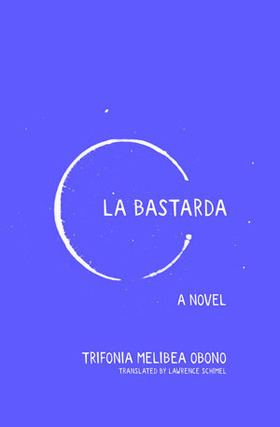
112 pages, published 2016
Original language: Spanish
Native author? Yes
Age: Teen-Adult
Blurb:
The first novel by an Equatorial Guinean woman to be translated into English, La Bastarda is the story of the orphaned teen Okomo, who lives under the watchful eye of her grandmother and dreams of finding her father. Forbidden from seeking him out, she enlists the help of other village outcasts: her gay uncle and a gang of “mysterious” girls reveling in their so-called indecency. Drawn into their illicit trysts, Okomo finds herself falling in love with their leader and rebelling against the rigid norms of Fang culture.
Other reps: #lesbian
Genres: #coming of age #romance #family
My thoughts:
A book banned it’s home country for being queer and rebelling against the rigid culture. Also not too long at 112 pages.
Review to come.
Bookshop.org link | Kindle link
#equatorial guinea#ya world challenge#books to read#feminist books#lesbian#coming of age#romance#family#west africa#african authors#lgbtq books#trifonia melibea obono#la bastarda
10 notes
·
View notes
Text
This Robe Dress is worn on Penélope Cruz as Melibea in La Celestina (1996) and worn again later on Sara James as Princess Marguerite in The Tudors (2007)
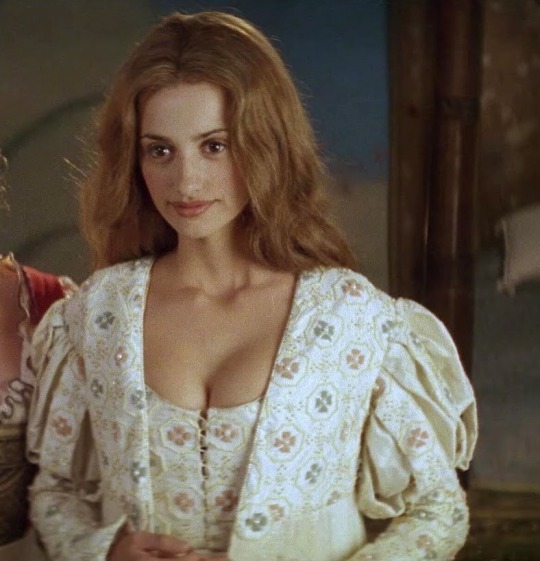
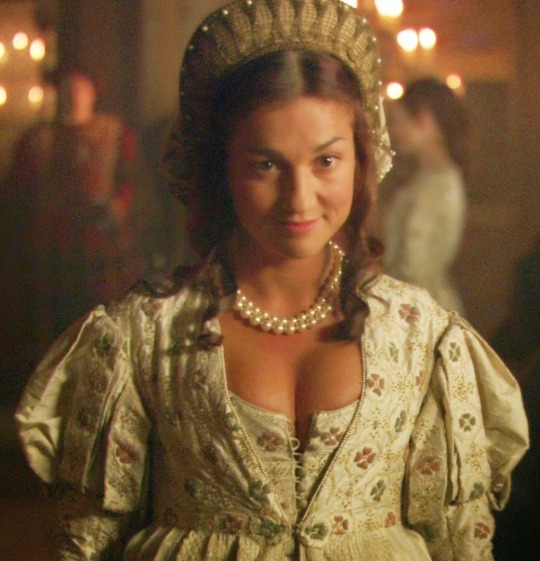
#recycled costumes#La Celestina (1996)#penélope cruz#Melibea#the tudors#sara james#Princess Marguerite#period drama#historical drama#costume drama#reused costume#reused costumes#costumes
0 notes
Text
La Bastarda by Trifona Melibea Obono
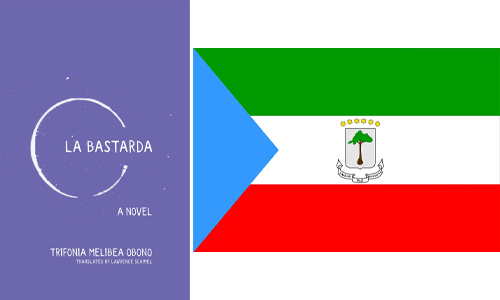
genres: contemporary, LGBTQ
translator: Lawrence Schimel (from Spanish to English)
rating: didn’t rate
themes: queer issues, womens issues, family, tension between traditional and modern perspectives
The first novel by an Equatorial Guinean woman to be translated into English, La Bastarda is the story of the orphaned teen Okomo, who lives under the watchful eye of her grandmother and dreams of finding her father. Forbidden from seeking him out, she enlists the help of other village outcasts: her gay uncle and a gang of “mysterious” girls reveling in their so-called indecency. Drawn into their illicit trysts, Okomo finds herself falling in love with their leader and rebelling against the rigid norms of Fang culture.
0 notes
Text
sharing some books I read recently and recommend for women in translation month!
for more: @world-literatures
Two Sisters by Ngarta Jinny Bent & Jukuna Mona Chuguna (Translated from Walmajarri by Eirlys Richards and Pat Lowe)
The only known books translated from this Indigenous Australian language, tells sisters Ngarta and Jakuna's experience living in traditional Walmajarri ways.
2. Human Acts by Han Kang
(Translated from South Korean by Deborah Smith)
Gwangju, South Korea, 1980. In the wake of a viciously suppressed student uprising, a boy searches for his friend's corpse, a consciousness searches for its abandoned body, and a brutalised country searches for a voice.
3. Things We Lost in the Fire by Mariana Enriquez
(Translated from Spanish by Megan McDowell)
Short story collection exploring the realities of modern Argentina. So well written - with stories that are as engrossing and captivating as they are macabre and horrifying.
4. Portrait of an Unknown Lady by Maria Gainza
(Translated from Spanish by Thomas Bunstead)
In the Buenos Aires art world, a master forger has achieved legendary status. Rumored to be a woman, she seems especially gifted at forging canvases by the painter Mariette Lydis, a portraitist of Argentine high society. On the trail of this mysterious forger is our narrator, an art critic and auction house employee through whose hands counterfeit works have passed.
5. My Brilliant Friend by Elena Ferrente (Translated from Italian by Ann Goldstein)
My Brilliant Friend is a rich, intense and generous-hearted story about two friends, Elena and Lila. Through the lives of these two women, Ferrante tells the story of a neighbourhood, a city and a country as it is transformed in ways that, in turn, also transform the relationship between her two protagonists.
6. Childhood by Tove Ditlevsen
(Translated from Danish by Tiina Nunnally and Michael Favala Goldman)
Tove knows she is a misfit, whose childhood is made for a completely different girl. In her working-class neighbourhood in Copenhagen, she is enthralled by her wild, red-headed friend Ruth, who initiates her into adult secrets. But Tove cannot reveal her true self to her or to anyone else.
7. La Bastarda by Trifonia Melibea Obono
(Translated from Spanish by Lawrence Schimel)
The first novel by an Equatorial Guinean woman to be translated into English, La Bastarda is the story of the orphaned teen Okomo, who lives under the watchful eye of her grandmother and dreams of finding her father. Forbidden from seeking him out, she enlists the help of other village outcasts: her gay uncle and a gang of “mysterious” girls reveling in their so-called indecency. Drawn into their illicit trysts, Okomo finds herself falling in love with their leader and rebelling against the rigid norms of Fang culture.
8. Strange Beasts of China by Yan Ge (Translated from Chinese by Jeremy Tiang)
In the fictional Chinese city of Yong’an, an amateur cryptozoologist is commissioned to uncover the stories of its fabled beasts. Aided by her elusive former professor and his enigmatic assistant, our narrator sets off to document each beast, and is slowly drawn deeper into a mystery that threatens her very sense of self.
#women in translation#translated fiction#booklr#book recommendation#books#mine#i sort of forgot it was this month which feels bad but#I mean I read translated women all the time but still I wanted to do smething
56 notes
·
View notes
Text
"Recoged desde hoy las rosas de la vida,"
soneto de Ronsard
#celestina#alma#amor#ramirodemaeztu#satanas#amor y dolor#vida#calisto#melibea#filosofia#letras#tiempo-para-el-alma
0 notes
Text
Global Reading Challenge: 113/200
A personal reading project, where I endeavour to read a book from each of the 193 United Nations member states plus 7 extra* ones. My main goal is to have fun and to learn, but I do have rules for myself:
The book should be fiction, and preferably a novel. I allow plays and poetry, but non-fiction only as the very last resort
The author should have the nationality of their country. If they have lived a good portion of their life there and genuinely represent the local culture, then it's ok if they've been born somewhere else
I want to read books that represent the local literary tradition. Preferably a "classic", a book that illustrates the local culture, or a book that is famous within the country. I avoid popular and contemporary fiction, and books that play outside of the country.
*Extra states have been determined based on UNESCO membership and personal interest where I want to read more books from. This is not a political statement.
The List
Afghanistan: Atiq Rahimi - Earth and Ashes
Albania:
Algeria: Albert Camus - The Stranger (FR)
Andorra: Teresa Colom - Mlle Keaton et autres creatures (FR)
Angola: José Eduardo Agualusa - The Book of Chameleons
Antigua and Barbuda
Argentina: JL Borges - Fictions
Armenia: Raffi - The Fool
Australia: Doris Pilkington/Nugi Garimara - Follow the Rabbit-Proof Fence
Austria
Azerbaijan
Bahamas: Telcine Turner - Woman Take Two
Bahrain
Bangladesh
Barbados
Belarus: Uladzimir Karatkievich - King Stakh's Wild Hunt
Belgium
Belize: Zee Edgell - Beka Lamb
Benin
Bhutan
Bolivia
Bosnia and Herzegovina
Botswana: Bessie Head - Maru
Brazil: Paulo Coehlo - The Alchimist
Brunei Darussalam: K.H. Lim - Written in Black
Bulgaria: Elias Canetti - Komödie der Eitelkeit (GER)
Burkina Faso: Norbert Zongo - Le parachutage (FR)
Burundi: Samoya Kirura - La femme au regard triste (FR)
Cabo Verde: Germano Almeida - The Last Will & Testament of Senhor da Silva Araújo
Cambodia
Cameroon: Francis Bebey - King Albert
Canada: S. Alice Callahan - Wynema: A Child of the Forest
Central African Republic: Étienne Goyémidé - Le dernier Survivant de la caravane
Chad: Told by Starlight in Chad - Joseph Brahmin Seid
Chile
China
Colombia
Comoros: Ali Zamir - A Girl Called Eel
Congo
Cook Islands*: Kauraka Kauraka- Oral tradition in Manihiki
Costa Rica: Carlos Luis Fallas - Mamita Yunai (Die Grüne Hölle, GER)
Côte D’Ivoire
Croatia
Cuba
Cyprus: Kyriakos Charalambides - Selected Poems
Czech Republic: Jan Neruda - Prague Tales
DPRK (North Korea)
DRC
Denmark
Djibouti
Dominica: Jean Rhys - Wide Sargasso Sea
Dominican Republic
Ecuador
Egypt
El Salvador: Horacio Castellanos Moyà - Le bal des vipères (FR)
Equatorial Guinea: Trifonia Melibea Obono - La Bâtarde (FR)
Eritrea: Helen Berhane - Song of the Nightingale
Estonia: Jaan Kross - The Czar's Madman
Eswatini: Malla Nunn - A Beautiful Place to Die
Ethiopia
Fiji: Rajni Mala Khelawan - Kalyana
Finland
France: Pierre Louys - Aphrodite: Ancient Manners
Gabon: Daniel M Mengara - Mema
Gambia
Georgia
Germany: Thomas Mann - Buddenbrooks
Ghana: Ayi Kwei Armah - The beautiful ones are not yet born
Greece
Greenland*: Knud Rasmussen - Eskimo Folktales
Grenada: Merle Collins - The Colour of Forgetting
Guatemala: Miguel Angel Asturias - Strong Wind
Guinea: Camara Laye - The Radiance of the King
Guinea Bissau: Abdulai Sila - The ultimate tragedy
Guyana Haiti
Honduras: Froylan Turcios - El Vampiro (SPA)
Hungary: Arthur Koestler - Darkness at Noon
Iceland
India: Rabindranath Tangore - The Home and the World
Indonesia
Iran: Sadegh Hedayat - The Blind Owl
Iraq: Andrew George - The epic of Gilgamesh
Ireland: James Joyce - Dubliners
Israel
Italy: Italo Calvino - If on a Winter's Night a Traveller
Jamaica: Andrew Salkey - Hurricane
Japan
Jordan: Amjad Nasser - L'ascension de l'amant (FR)
Kazakhstan
Kenya
Kiribati: Teresia Teaiwa & Vilsoni Hereniko - Last Virgin in paradise
Kosovo*: Flora Brovina - Call me by my name
Kuwait
Kyrgyzstan: Chingiz Aitmatov - Jamila
Laos: Outhine Bounyavong - Mother's Beloved
Latvia
Lebanon
Lesotho
Liberia: Bai T. Moore - Murder in the Cassava Patch
Libya
Liechtenstein
Lithuania: Vingas Kreve - The Herdsman and the Linden Tree
Luxembourg: Norbert Jacques - Dr Mabuse der Spieler (GER)
Madagascar: Jean-Joseph Rabearivelo - Traduit de La nuit (FR)
Malawi
Malaysia
Maldives: Abdullah Sadiq - Dhon Hiyala and Ali Fulhu
Mali
Malta
Marshall Islands: Kathy Jetnil-Kijiner - Iep Jaltok: Poems from a Marshallese Daughter
Mauritania: Moussa Ould Ebnou - L'Amour Impossible (FR)
Mauritius
Mexico: Mario Bellatín - Beauty Salon
Micronesia: Emelihter Klieng - My Urohs
Monaco: Louis Notari - La légende de Sainte Dévote (FR)
Mongolia: Galsan Tschinag - Die Karawane (GER)
Montenegro: Petar II Petrovic Njegos - The Mountain Wreath
Morocco: Abdellatif Laâbi - Le bâpteme chacaliste (FR)
Mozambique
Myanmar
Namibia
Nauru: Nancy Viviani - Nauru, phosphate and political progress
Nepal
Netherlands
New Zealand: Witi Ihimaera - The Whale Rider
Nicaragua: Rubén Dario - Azul… (SPA/ENG)
Niger
Nigeria: Chinua Achebe - Things Fall Apart
Niue*: John Puhiatau Pule - The Bond of Time: An Epic Love Poem
North Macedonia
Norway: Henrik Ibsen - A Doll's House
Oman
Pakistan: Jamil Ahmad - The Wandering Falcon
Palau: Hermana Ramarui - The Palauan Perspective: a poetry book
Panama: Ricardo Miró - Las Noches de Babel (SPA)
Palestine*: Ibrahim Nasrallah - Prairies of Fever
Papua New Guinea: Vincent Eri - The Crocodile
Paraguay
Peru: Mario Vargas Llosa - In Praise of the Stepmother
Philippines
Poland: Isaac Singer - The Magician of Lublin
Portugal
Qatar
Republic of Korea
Republic of Moldova
Romania: Ioan Slavici - The lucky mill
Russian Federation: Leo Tolstoi - The Death of Ivan Ilyich
Rwanda
Saint Kitts and Nevis: Caryl Philips - Cambridge
Saint Lucia: Derek Walcott - Omeros
Saint Vincent and the Grenadines
Samoa: Albert Wendt - Leaves of the Banyan Tree
San Marino: J. Theodore Bent - A freak of Freedom: or, the Republic of San Marino
Sao Tome and Principe:
Saudi Arabia
Senegal
Serbia
Seychelles: Antoine Abel - Coco Sec (FR)
Sierra Leone
Singapore
Slovakia: Milan Rúfus - Strenges Brot
Slovenia: France Prešeren - Poems
Solomon Islands: John Saunana - Cruising Through the Reverie
Somalia: Hadraawi - The Poet and the Man
South Africa: JM Coetzee - Disgrace
South Sudan: Nyuol Lueth Tong - There is a country
Spain: Miguel de Unamuno - Abel Sanchez and Other Stories
Sri Lanka
Sudan
Suriname
Sweden: August Strindberg - The Red Room
Switzerland
Syrian Arab Republic: Ibn al-Nafis - Theologus Autodidactus
Taiwan*
Tajikistan: Shavkat Niyazi - At the Foot of Blue Mountains: Stories by Tajik Authors
Thailand
Timor-Leste: Xanana Gusmão - Mar Meu
Togo
Tonga: Epeli Hau'ofa - Tales of the Tikongs
Trinidad and Tobago
Tunisia: Albert Memmi - The Pillar of Salt
Turkey
Turkmenistan: Magtymguly - Poems from Turkmenistan
Tuvalu: Neil Lifuka - Logs in the current of the sea
Uganda: Okot p'Bitek - Song of Lawino & Song of Ocol
Ukraine: Andrey Kurkov - Death and the Penguin
United Arab Emirates
UK: Virginia Woolf - Mrs Dalloway
United Republic of Tanzania
USA: John Steinbeck - Grapes of Wrath
Uruguay
Uzbekistan: Abdullah Qoqiriy - Bygone Days
Vanuatu: Grace Molisa - Black Stone
Vatican City*: Andrew Graham-Dixon - Michelangelo and the Sistine Chapel
Venezuela
Viet Nam
Yemen: Abdul-wali - They die strangers
Zambia
Zimbabwe
#booklr#currently reading#reading challenge#classic literature#literature#books#book recommendations#global reading#Sam reads#PLEASE let me know if the Read More breaks since this is a very longue post#I will link to my book reviews of the books I've read when I post them!!!
24 notes
·
View notes
Note
It's tiring of greek retellings depicting ancient Greece as a hellish world for women. Like damn guys you gonna take some tragic plays and summarise ancient Greece from that alone?
Like movies, ancient Greek theatre exaggerated things, but people back then lived pretty normally when not at war and focused on surviving and working.
Why not have a story about an ordinary couple? Why not showing a loving marriage like Odysseus and Penelope? Homer wrote it 3.000 years ago i am pretty sure many couples in ancient Greece had a happy marriage without drama.
That's kind of the whole problem, people WANT drama.
Not for the funnys whatsoever, it's because they need to feel that we're 10 times better than the ancient times. All of them. And while yes, of course we have improved, no shit Sherlock, I can vote, we still aren't as near as we think to an ideal world. And just look at what's going on around the globe, we're far away from any ideal OR AT LEAST decent society. So that's why people always need to make EVERYTHING regarding ancient times as absolutely horrible.
They will invent new torture methods for the Medieval Ages, say every woman in Ancient Greece was just considered a walking uterus and that's it... And the list goes on.
Yes, of course our society is better, but it's nowhere near as good. Whenever people jump at me with "why do you read about Ancient Greece? Women were treated horribly!" I just go: okay... and? What do you want me to do about it? To travel back in time and cancel Aeschylus? Worry about ALL the women that nowadays are being treated by trash. I literally couldn't care less about "misunderstood Ancient fictional characters" I want every woman getting hurted for being a woman to be helped.
Of course, we can't ignore how life was back then for women, but honestly, saying all of them were in the most miserable state ever? No, that's not it, buddy. People don't want Odysseus and Penelope because they were a stable marriage, they want drama, they want hate, they want everyone to suffer, basically.
In any case, anon, I agree with you. Like, just look at the literature tropes from ALL times. Pyramus and Thisbe, then Calisto and Melibea, then Romeo and Juliet... People have always just wanted couples to suffer lmao
#i mean. i LOVE drama. i love edgy lore#but god damn. people have gone insane#can we please have a couple just hugging eachother#please#answered#anon
9 notes
·
View notes